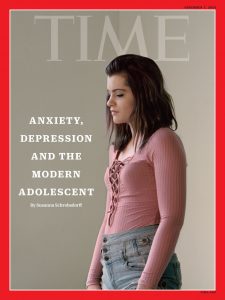
An article in Time Magazine by Susanna Schrobsdorff, Anxiety, Depression, and the American Adolescent, explores the causes of the recent significant increase in teen mental health issues.
http://time.com/magazine/us/4547305/november-7th-2016-vol-188-no-19-u-s/
Schrobsdorff identifies a number of potential causes for the increased rates of depression, anxiety, and other mental health problems ...continue reading


